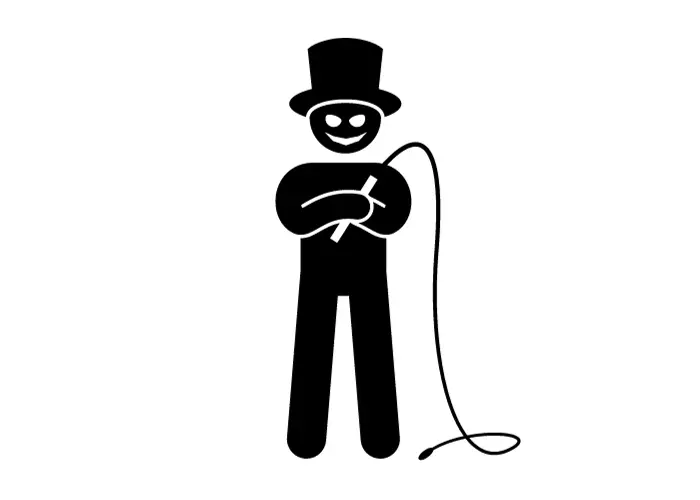The Beginnings: Tracing the Lineage of “Whipped”
The term “whipped,” in its conventional sense, pertains to the action of beating or lashing with a whip. Its transition to American slang, however, is an interesting tale of linguistic evolution and cultural appropriation. The slang connotation of “whipped” finds its roots in the late 20th-century American urban lingo. Initially used to describe someone who was controlled or dominated (much like the action of whipping), it began to be popularly applied in the context of relationships.
Delving Deeper into Relationship Dynamics: Unraveling “Whipped”
In the intricate web of romantic interactions, “whipped” carved out its niche as both a jest and a reflection of relationship dynamics. Initially used in a teasing manner, it identified individuals who seemed to pivot their life around their partner’s whims and wishes. Such individuals appeared to be dancing to their partner’s tune, often sacrificing their own desires, aspirations, or even personal space in the bid to keep their significant other contented.

Examples abound. Consider someone who consistently sidelines their personal interests or hobbies to cater to their partner’s preferences. Or someone who, despite initial reluctance, finds themselves attending events or participating in activities purely because it pleases their partner. These actions, often viewed as subservient by peers, led to the playful labeling of the individual as “whipped.”
Yet, behind the playful jabs lies a deeper societal critique. The term underscores the often-unspoken rules of romantic engagements—rules that advocate for a balance, for mutual respect, and for preserving one’s individuality even in union. To be “whipped” is, in a way, to tread the thin line between loving compromise and self-erasure.
“Whipped” Reimagined: Contemporary Culture’s Take
The winds of time brought with them changing perceptions of love, commitment, and relationship dynamics. As societies progressed towards more equitable partnership models, the term “whipped” began evolving. No longer was it just a snide remark. Instead, it started representing the depths to which one could go for love. In modern parlance, to be “whipped” might also signify unwavering commitment, a testament to the lengths one would journey to make their partner happy.
Pop culture, a mirror to societal shifts, has been instrumental in this evolution. Films portrayed characters who, despite being “whipped,” were cherished for their dedication. Television narratives spun tales of deep love where being “whipped” was synonymous with being hopelessly in love. Musicians crooned about the highs and lows of such intense feelings, sometimes celebrating them, at other times lamenting the associated pains.

This dual portrayal, both in celebration and criticism, transformed “whipped” from a mere slang to a commentary on modern love. It paints a picture of love’s complexities, where sacrifice is as much a token of affection as is the need for preserving one’s self-identity.
The Societal Impact: “Whipped” Beyond Romance
Interestingly, the ripple effect of the term “whipped” extends beyond the confines of romantic partnerships, touching upon broader societal relationships and dynamics. In group settings, for example, someone might be labeled as “whipped” if they consistently yield to the majority’s preferences, regardless of their personal stance. It highlights the age-old tussle between individuality and conformity, showcasing the pressures that social constructs place upon individuals. Similarly, in friendships, one might tease a friend for being “whipped” if they consistently prioritize another friend’s wishes over the group. This broadened usage underscores the universality of the balance-of-power concept, emphasizing its relevance not just in love, but in all human interactions. As with romantic contexts, the term becomes a tool for reflection, urging individuals to assess their roles in relationships and to strive for equilibrium and mutual respect.
The Takeaway: Whips, Relationships, and Language
Slang, by its very nature, is a reflection of societal trends, norms, and shifts. The journey of “whipped” from a simple action to a commentary on relationship dynamics underscores the adaptability of language. As society grows and evolves, so do the words we use, offering a fascinating glimpse into our collective psyche.
FAQs: Getting a Grip on “Whipped” in Slang
1. What does “whipped” mean in slang?
It refers to someone who seems to be under significant influence or control of their romantic partner.
2. Is the term “whipped” derogatory?
While initially used in a somewhat teasing or derogatory manner, its interpretation largely depends on context and intent. Nowadays, it can also imply deep commitment.
3. Can “whipped” be used outside of romantic relationships?
Yes, it can be applied in contexts where someone seems to be dominated or heavily influenced by another person, even outside of romantic settings.
4. How did pop culture influence the term?
Movies, TV shows, and songs have either reinforced, criticized, or reshaped the perception of being “whipped,” contributing to its widespread use and understanding.
5. Is “whipped” only an American slang?
While it has its roots in American culture, the global nature of media and the internet has facilitated its understanding and usage in various parts of the world.






